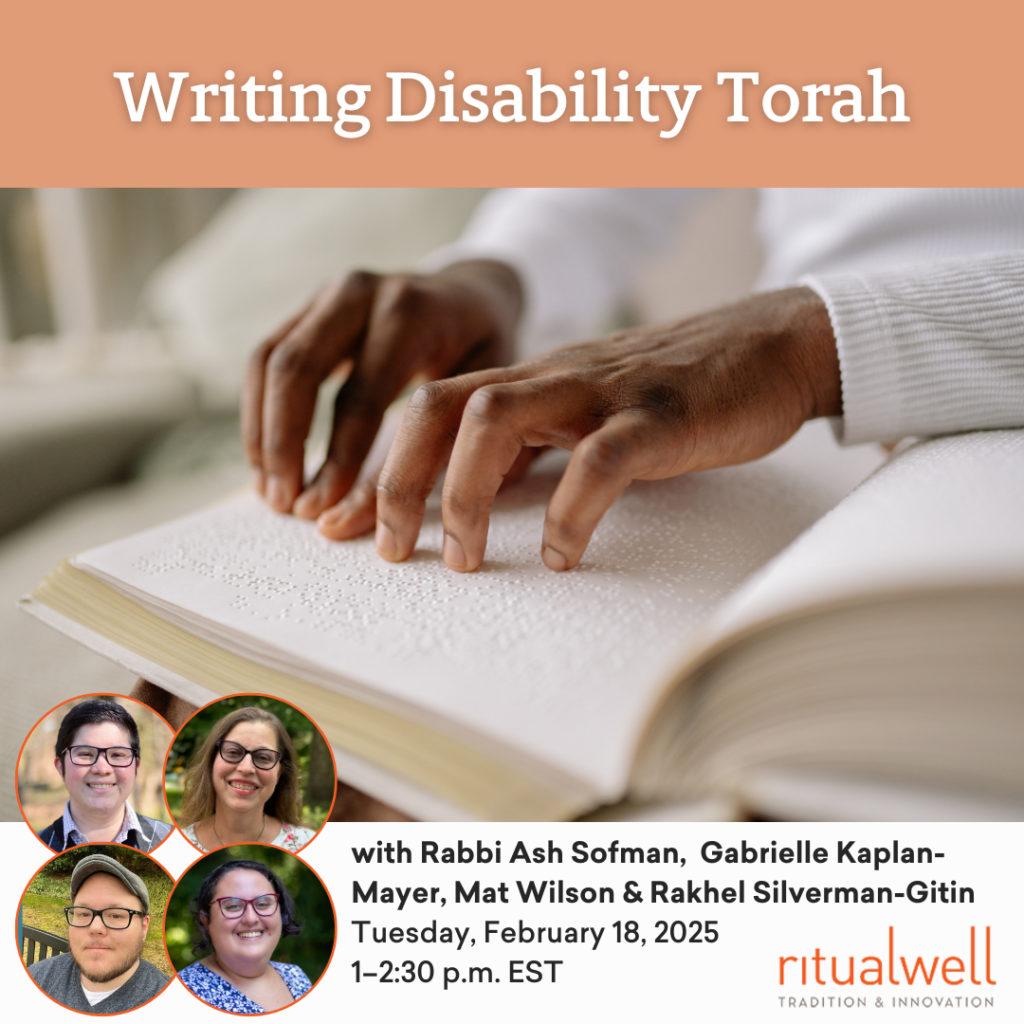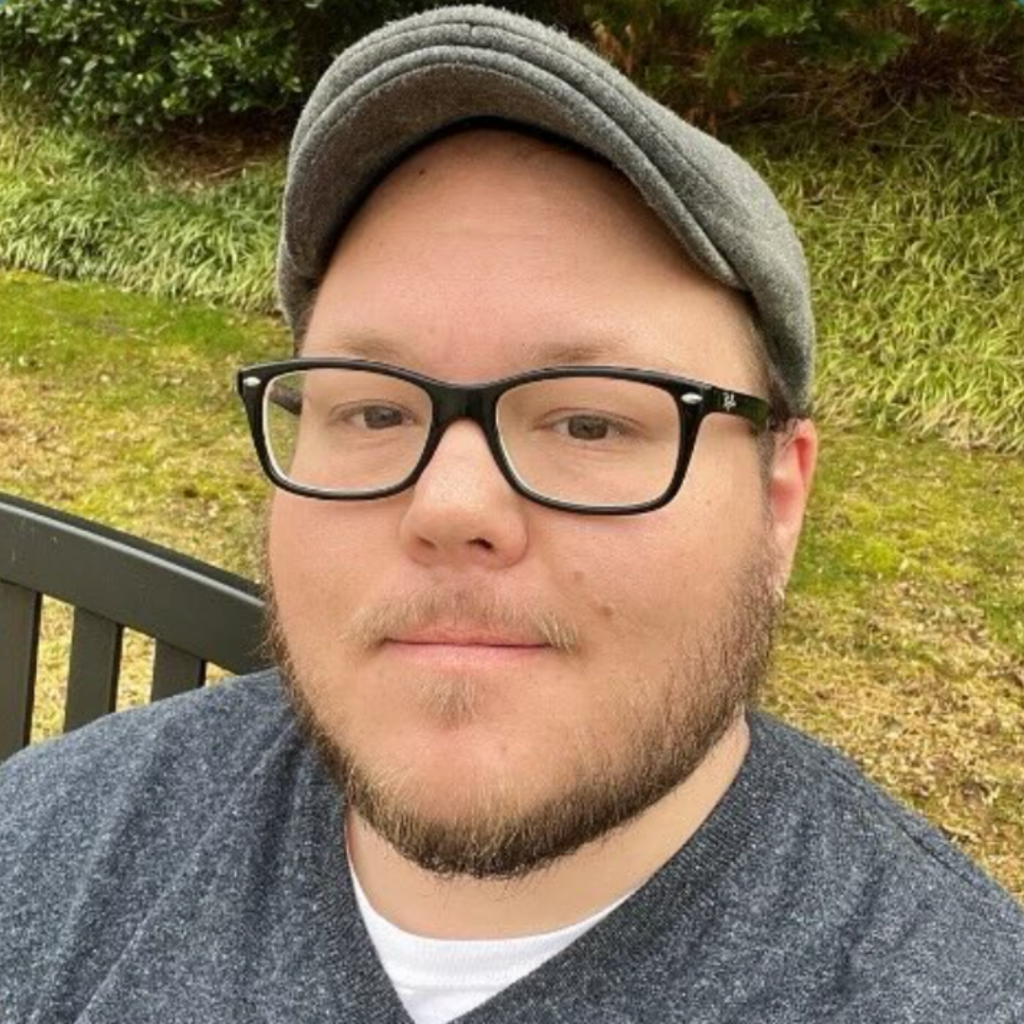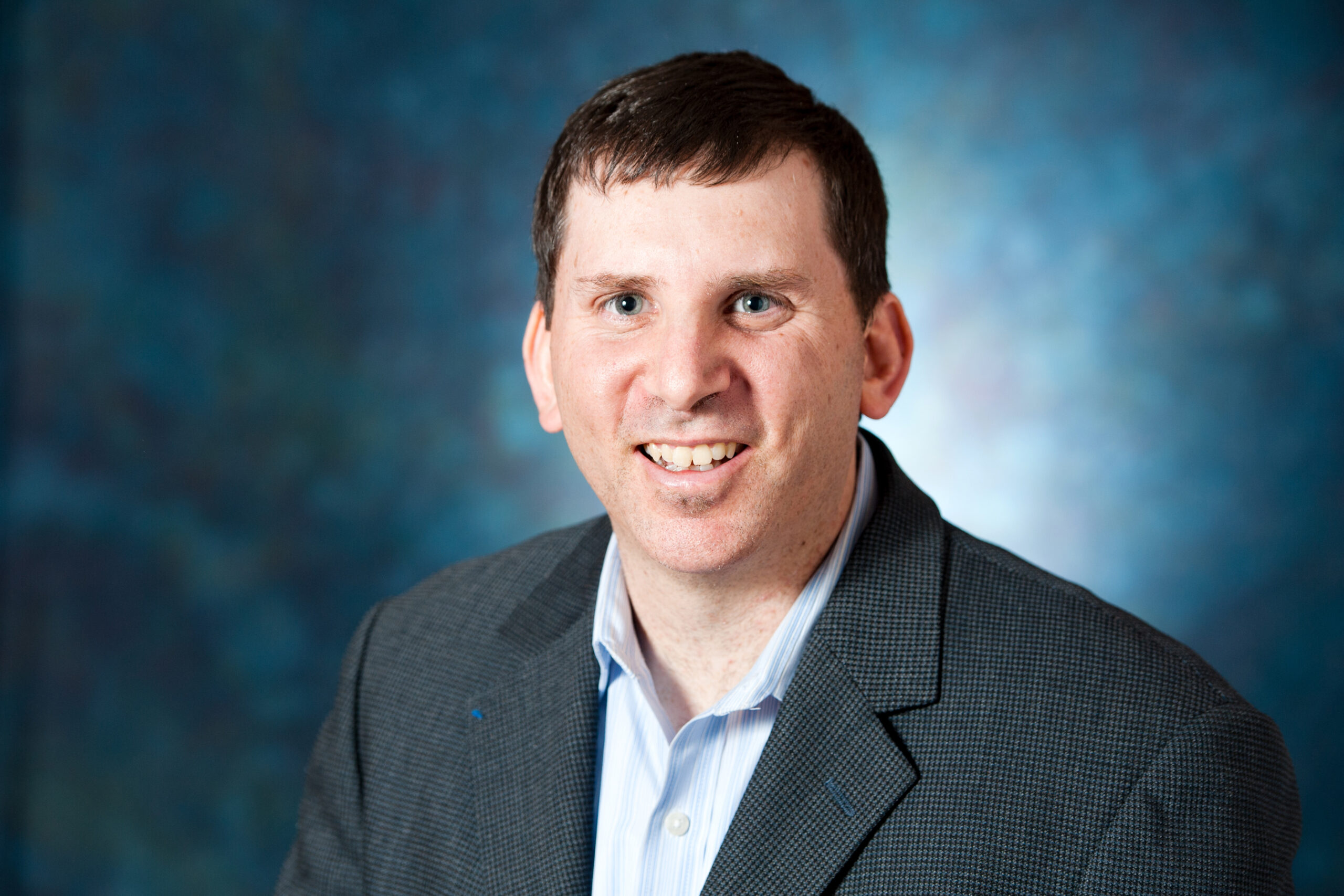Shortly after graduating college six years ago, Rakhel Silverman-Gitin (they/them) organized a Shabbat dinner and received a query from an interested participant. Would the dinner be wheelchair-accessible?
Silverman-Gitin, who identifies as Queer and trans, and is committed to inclusion in Jewish life, was somewhat embarrassed to admit that they didn’t know. Turned out, the dinner was set for a third-floor walk-up apartment with no elevator. The person, Sy, who’d asked offered to hold the meal at their place instead. (As it turns out, Sy is now Silverman-Gitin’s spouse.)

“I was really interested in building Jewish spaces that are radically inclusive to all types of people, but disability was not on my radar,” acknowledged Silverman-Gitin. “I wasn’t thinking about folks with many different types of disabilities.”
That has changed in a big way.
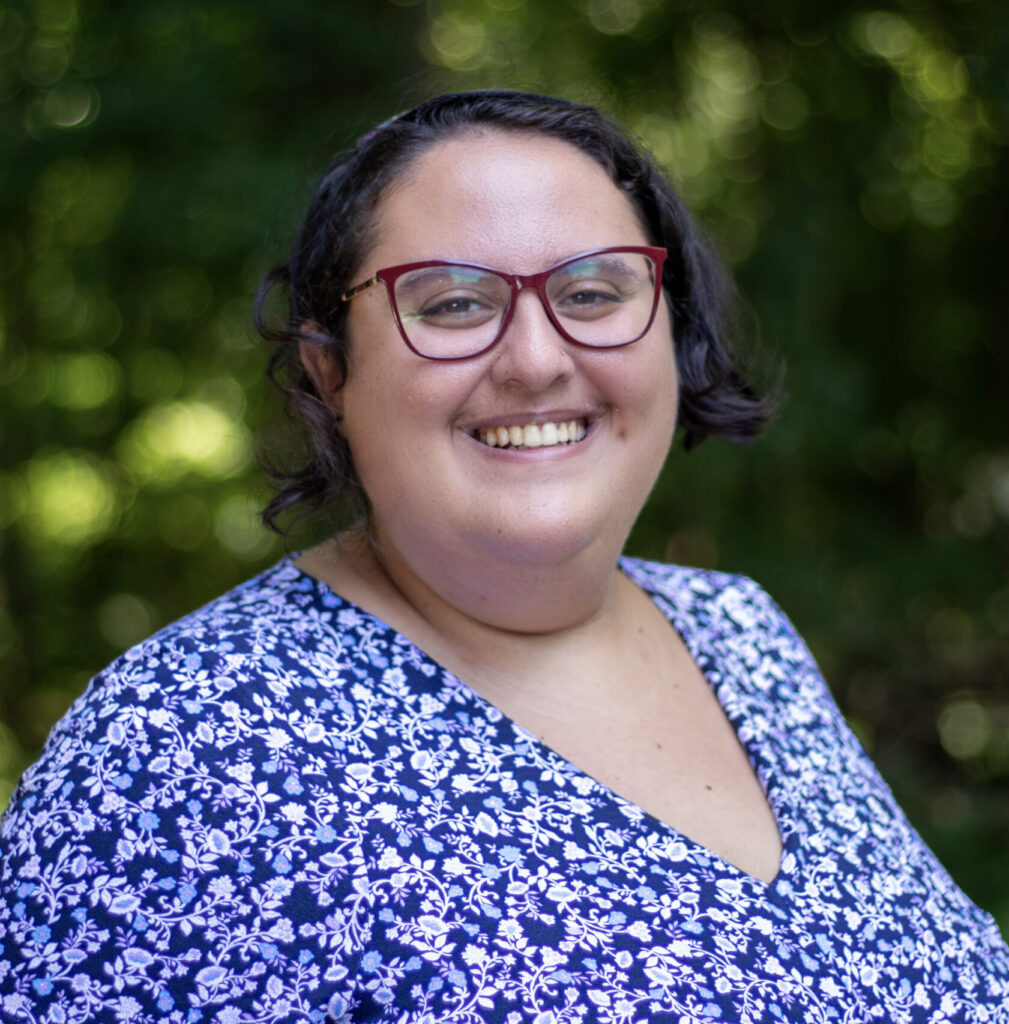
In the years since, Silverman-Gitin has engaged in deep learning about the wide spectrum of people living with different kinds of disabilities related to mobility, vision, hearing, sensory and mental health. They have also delved into ways Jewish spaces can meet all people’s needs and where some fall short. Through their introduction to disability justice, Silverman-Gitin was able to put to words their own experiences with mental health and now identifies as disabled.
Today, Silverman-Gitin is a first-year student at the Reconstructionist Rabbinical College (RRC) who has created a project called “Disability Justice and Sacred Rest.”
On Feb. 18, Silverman-Gitin will be featured as part of a Ritualwell virtual program called “Writing Disability Torah” that will include text study and creative writing exercises. They’ll be joined by fellow RRC student Mat Wilson (they/them), who has launched the Disability Torah Project. Program registrants will receive a digital booklet, “Voices of Disability: Jewish Prayers, Blessings and Poems.”
Gabrielle Kaplan-Mayer (she/they), an educator and disability advocate who serves as Ritualwell’s director of virtual content, will moderate the program, along with Rabbi Asher Sofman (he/him), RRC ’23, Reconstructing Judaism’s Justice, Equity, Diversity and Inclusion (JEDI) program coordinator.
Kaplan-Mayer said she’s “thrilled that we can spotlight Mat and Rakhel’s innovative projects, and give everyone who joins us an opportunity learn more about Disability Torah, as well as engage in writing and sharing. Ritualwell is committed to disability inclusion throughout all of our programs and this event spotlights the importance of centering voices of people with disabilities.”
Both Silverman-Gitin and Wilson received funding for their projects from Reconstructing Judaism’s Auerbach Launch Grant, which supports rabbinical students pursuing innovative, entrepreneurial projects. These grants are just a small part of the resources Reconstructing Judaism is devoting to disability inclusion.
According to the Centers for Disease Control, one in four American adults live with a disability. Reconstructionist congregations and havurot have long been part of an evolution that’s taken place in the public awareness of the importance of disability inclusion and related services. In more recent years, Reconstructing Judaism has devoted additional staffing and funding in disability inclusion, including hiring Sofman to advance the movement even further. From the movement that expanded the bat mitzvah to young women and welcomed openly queer people into the rabbinate, it also reflects a long-held ideal to make Jewish community and experience accessible to more people.
Even in more stable times, disability inclusion was a big task and there are many obstacles to getting it right. Religious organizations are not required to comply with the Americans with Disability Act, and making a building fully accessible can be costly. At the same time, pursuing disability inclusion requires an almost conceptual reorientation. It’s not only about making a bimah wheelchair-accessible. It’s about making sure that someone with a scent disability can enter a space, or someone with ADHD or autism can feel seen and embraced — and 100 other things.
“I think what makes disability a bit different than other types of identities and inclusion is that there’s a whole gamut of ways that disabilities present themselves,” said Silverman-Gitin.
In connection to (JDAIM), Silverman-Gitin will spend a weekend as guest service and workshop leader at Or Haneshamah, Ottawa’s Reconstructionist community. (This is made possible by the Reconstructing Judaism Auerbach Grant.) They will teach on the “Disability Justice and Sacred Rest” concept they have developed. In a way, this flips the switch: Rather than focus on what Jewish communities can do for the disabled, it will call attention to the lived experiences and spiritual insights from the disability community that benefit everyone.
“What I’ve learned is that the disability community is very wise and adaptable, and able to be creative,” said Silverman-Gitin. “Especially in these difficult times, we have so much to learn from the disability community about sacred rest, sustainability, interdependence and community care.”
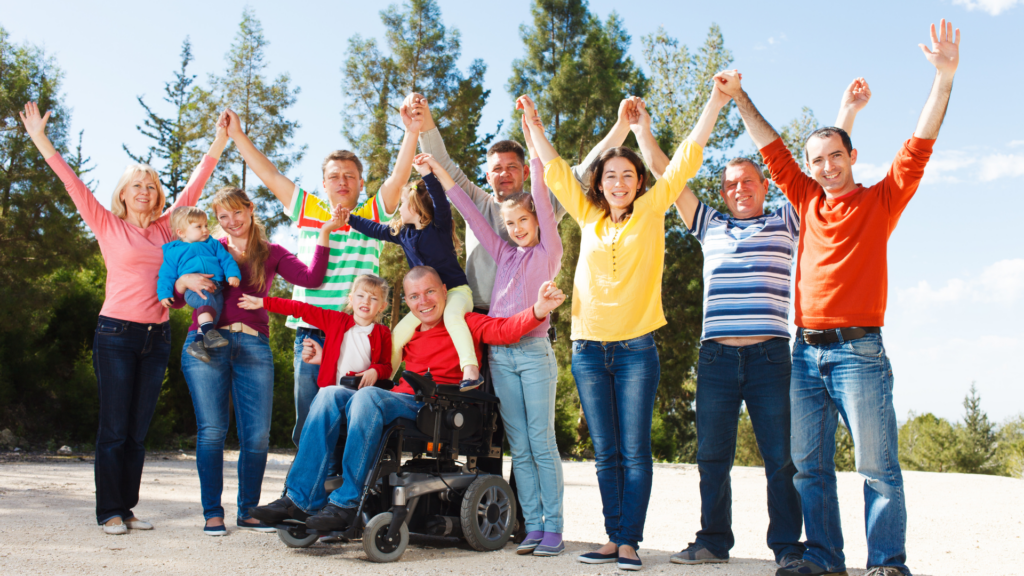
“Disability justice — a term coined by the Black, brown, queer and trans members of the original Disability Justice Collective — is an intersectional movement in opposition to our culture’s individualism and grind culture,” added Silverman-Gitin
Wilson is a third-year RRC student who is also pursuing a master’s of nonprofit leadership at the University of Pennsylvania. Previously, they’d been a college career counselor and found their way to rabbinical school after following their own advice to students about following their passions.
As a student of Torah, Wilson noted that there are dedicated resources to examine Torah from many perspectives, except the disability perspective. And, as one who’s lived with a disability for many years, Wilson knows disability colors how one sees the world.
“I know when I’m studying Torah, if I want a woman’s perspective, I know where to go to find that. If I want a queer or trans perspective, I know where to go to find that. Any sort of denominationally specific perspective, I know where to go to find that,” said Wilson.
I think what makes disability a bit different than other types of identities and inclusion is that there’s a whole gamut of ways that disabilities present themselves.
Rakhel Silverman-Gitin.
Wilson decided to launch a project featuring divrei Torah written by disabled writers. Some will focus on explicit disabilities found in the text, such as Isaac’s blindness. Others will look at things beneath the surface.
For a disability perspective, there are a few places to find a couple of writings, but this type of dedicated resource doesn’t exist, they said.
“This project is trying to center the perspectives and experiences of disabled people in the study of Torah,” said Wilson. “The goal is to uplift disabled wisdom in order to grow the library of disability Torah.”
The Reconstructing Judaism Auerbach Grant ensures that Wilson will be able to pay writers for their work. The grant will fund Torah commentaries for the books of Exodus and Leviticus. Wilson hopes this is just the beginning of an ongoing project that will help reframe how people understand the Torah and their own communities.
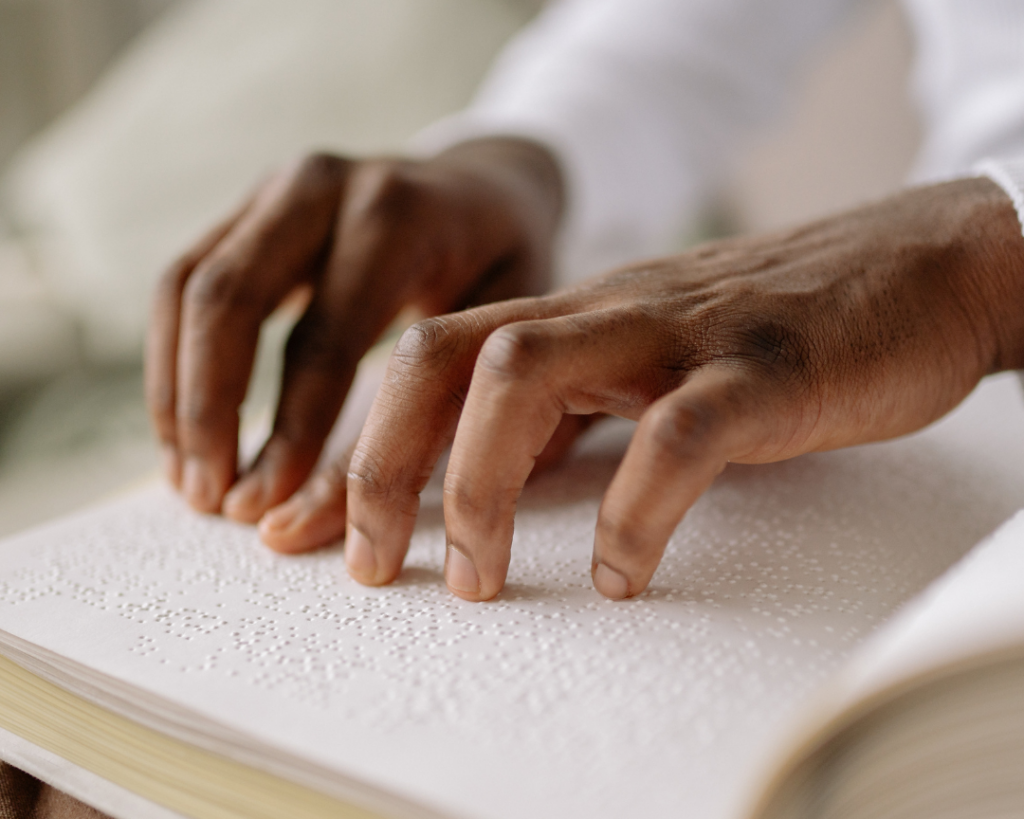
“Torah can be really great to use as a jumping-off point to think about lived experience,” Wilson said.
In the meantime, Reconstructing Judaism remains committed to co-creating communities where people of all abilities can experience and participate fully and meaningfully in Jewish life.

